Web Server Gateway Interface
uWSGI acts as a middleware between Nginx web server and Python web application, realizing communication and data exchange.
Single Python instance with one-click installation and managed service with control panel, ideal for small projects.
Cloud Clusters Python web hosting is cheap, flexible in configuration, easy to manage, high in security, and quick in technical support.

Cloud Clusters supports multiple Python 3.6 and 3.8, allowing you to choose freely, which ensures compatibility and flexibility.

Integrate high-performance Nginx as a reverse proxy with a fast uWSGI web server to provide reliable and efficient Python web application hosting.

Cloud Clusters provides specific support for popular Python web frameworks such as Django, Flask, or Pyramid. Users can deploy on demand.

Cloud Clusters also provides hosting service for various databases, such as MySQL, PostgreSQL, and SQL server. You can order along with the Python hosting service.

There is only a maximum of 8.76 hours of unavailable time per year, covering service interruptions caused by hardware, network, and power failures.

Provide round-the-clock technical support to help developers troubleshoot issues related to hosting environments.

Provide flexible scalability and elasticity options so that users can upgrade or reduce resources, such as storage space, bandwidth, and computing resources.

Weekly or biweekly backup service is included. You can also manually back up data anytime to avoid data loss problems.
Security is crucial for Python web hosting, and Cloud Clusters can protect users' data and applications from potential security risks and attacks. At the same time, developers should also adopt proper security practices such as code review, input validation, and secure programming techniques to increase the security of the application.

Using containerization such as Docker for Python server hosting can enhance security by isolating the application and its dependencies in containers.

A firewall acts as a barrier between the server and external networks, filtering incoming and outgoing traffic based on predefined security rules.

Deploying an SSL certificate on free Python hosting server allows for encrypted HTTPS connections, protecting sensitive user information, login credentials, and other data from interception.

A DDoS attack is designed to overwhelm a server by flooding it with a flood of traffic from multiple sources. Cloud Clusters has robust DDoS mitigations to detect and mitigate such attacks.
Control panel of the cloud Python hosting server provides functions such as free SSL certificate, Web Shell, domain name management, DNS server settings, FTP access, and performance monitoring to facilitate the management and maintenance of your server and website.
Control panel provides an easy-to-use domain name management interface, allowing you to manage your domain name, add subdomains, set domain name forwarding, etc. It also provides a free SSL certificate function, allowing users to easily enable HTTPS encryption for websites.
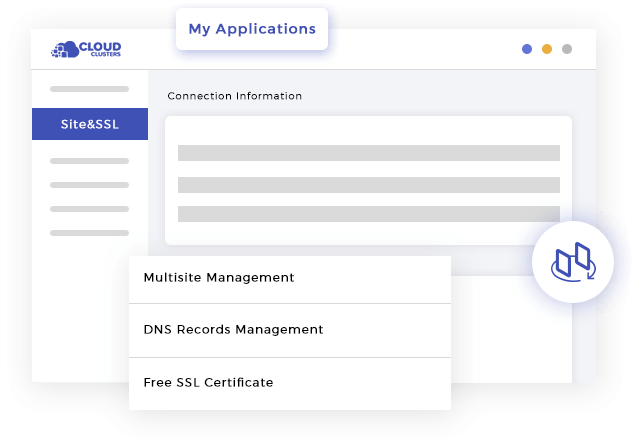
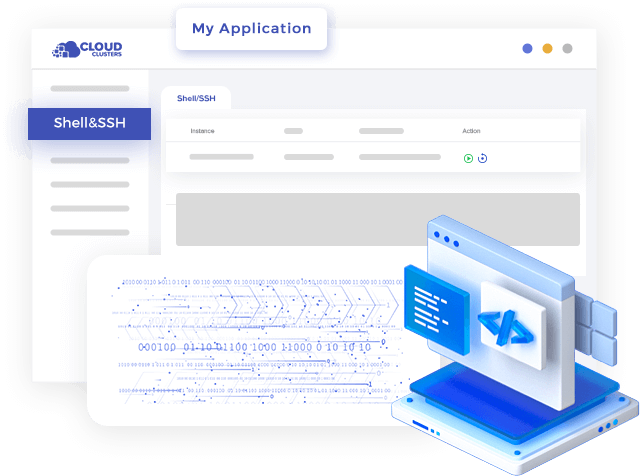
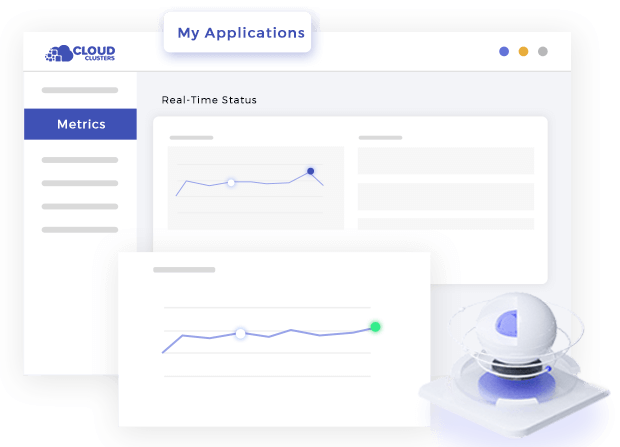
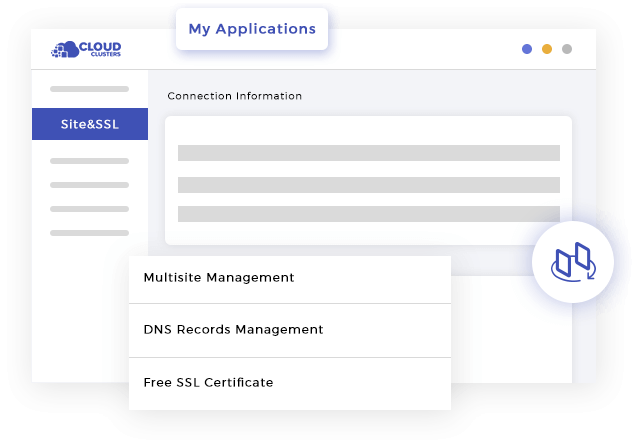
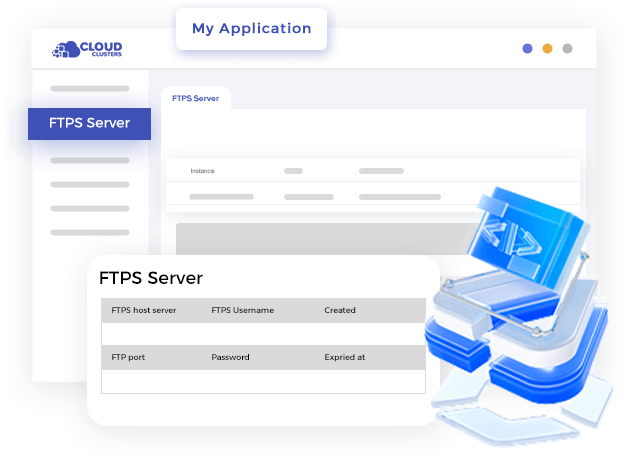
Whether you're using Django, Flask, or any other Python web framework, Cloud Clusters provides the necessary infrastructure, support for Python versions, and deployment tools to host your Python web application and serve it to your users.

Users can deploy Python environment configuration with one click, including Python version, and enter the control panel to start the application.

Enter the control panel, users can start the service on the "FTPs Server" page, and upload their own Python project files.

Once the application is uploaded and configured, users can launch their application by visiting the domain name or IP address associated with the hosting account.

Developers can monitor the performance of the application and troubleshoot any issues using Cloud Clusters' control panel or third-party monitoring tools.
uWSGI is a Server Gateway Interface (WSGI) tool for connecting Python web applications to web servers.

uWSGI acts as a middleware between Nginx web server and Python web application, realizing communication and data exchange.

uWSGI has powerful concurrent processing capabilities and can handle multiple client requests at the same time.

uWSGI supports load balancing, which can evenly distribute client requests to multiple backend application instances.
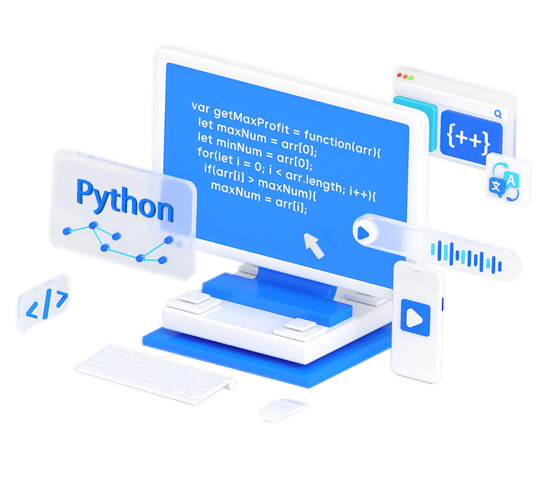
Nginx acts as a high-performance reverse proxy server and static file server in Python hosting to optimize and strengthen the hosting environment of Python web applications.

Nginx acts as a reverse proxy server to receive client requests.

Nginx can efficiently serve static files.

Nginx supports the SSL/TLS encryption protocol and can provide secure HTTPS connections.

Nginx has a flexible caching mechanism to reduce requests to backend applications.
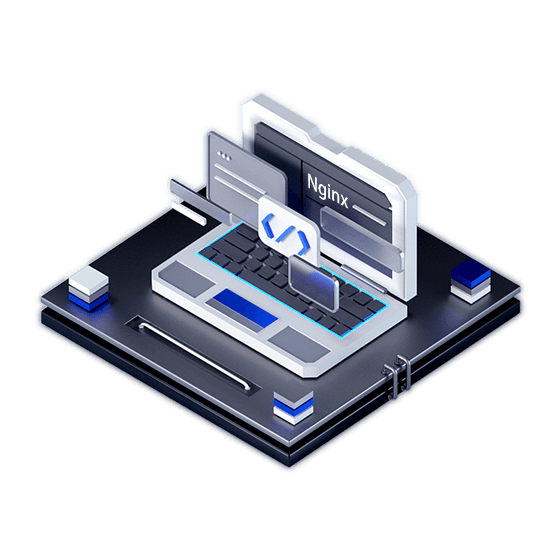
Through the judicious use of plugins, developers can build complex Python applications more quickly, efficiently, and reliably. Python hosting supports many plugins and frameworks, including Django, Flask, Pyramid, Tornado, SQLAlchemy.
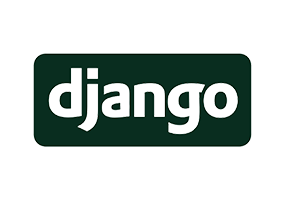



Whether it's web development, data science, automation, command-line tools, or desktop applications, Python provides a wealth of tools and libraries that enable you to build applications of all types.
Python hosting is a popular language of choice for developing web applications. You can use frameworks like Django, Flask, and Pyramid to build powerful web applications.

Python server can be used to create and host Web API services. You can use Python frameworks, such as Django REST framework and Flask-RESTful, to build RESTful APIs.

Python server hosting is very popular in the field of data science with many powerful libraries and tools such as NumPy, Pandas, SciPy, and scikit-learn.

You can use Python server to write regularly executed scripts, data processing tasks, and file operations, and then host them on the server for automated execution.

Python server can be used to build command-line tools for performing specific tasks or manipulating data. You can use libraries like Click and argparse to build interactive command-line interfaces.

Python server can also be used to build simple desktop applications. You can use libraries like PyQT, Tkinter, and wxPython to build cross-platform desktop applications.

Support multiple Python instances with manual setup, offering flexibility for small to medium-sized projects.
Offer exclusive hardware with high performance for running Python, perfect for large-scale or high-traffic projects.
In addition to Python web hosting, there are several other popular runtime environments that are commonly hosted.